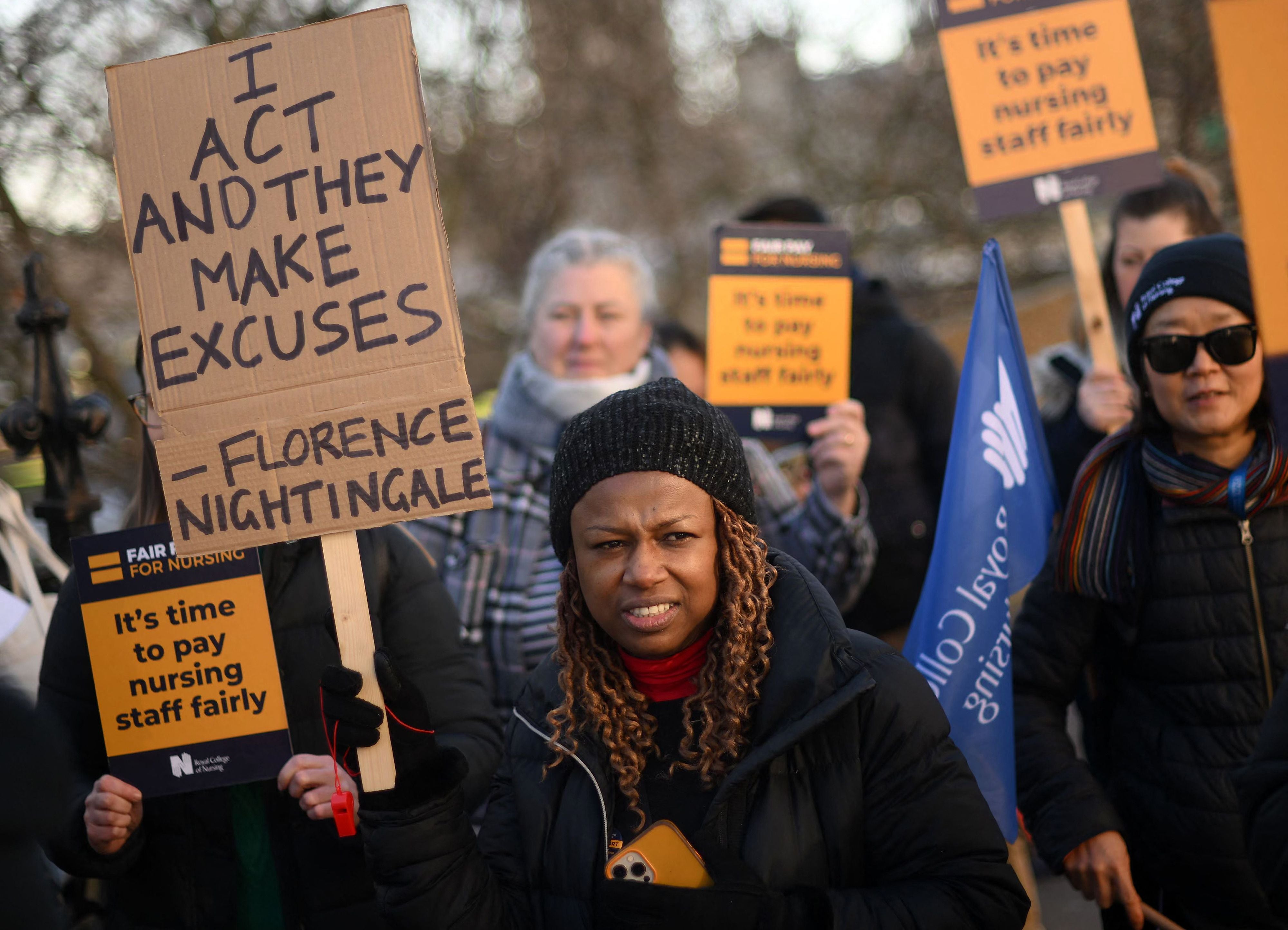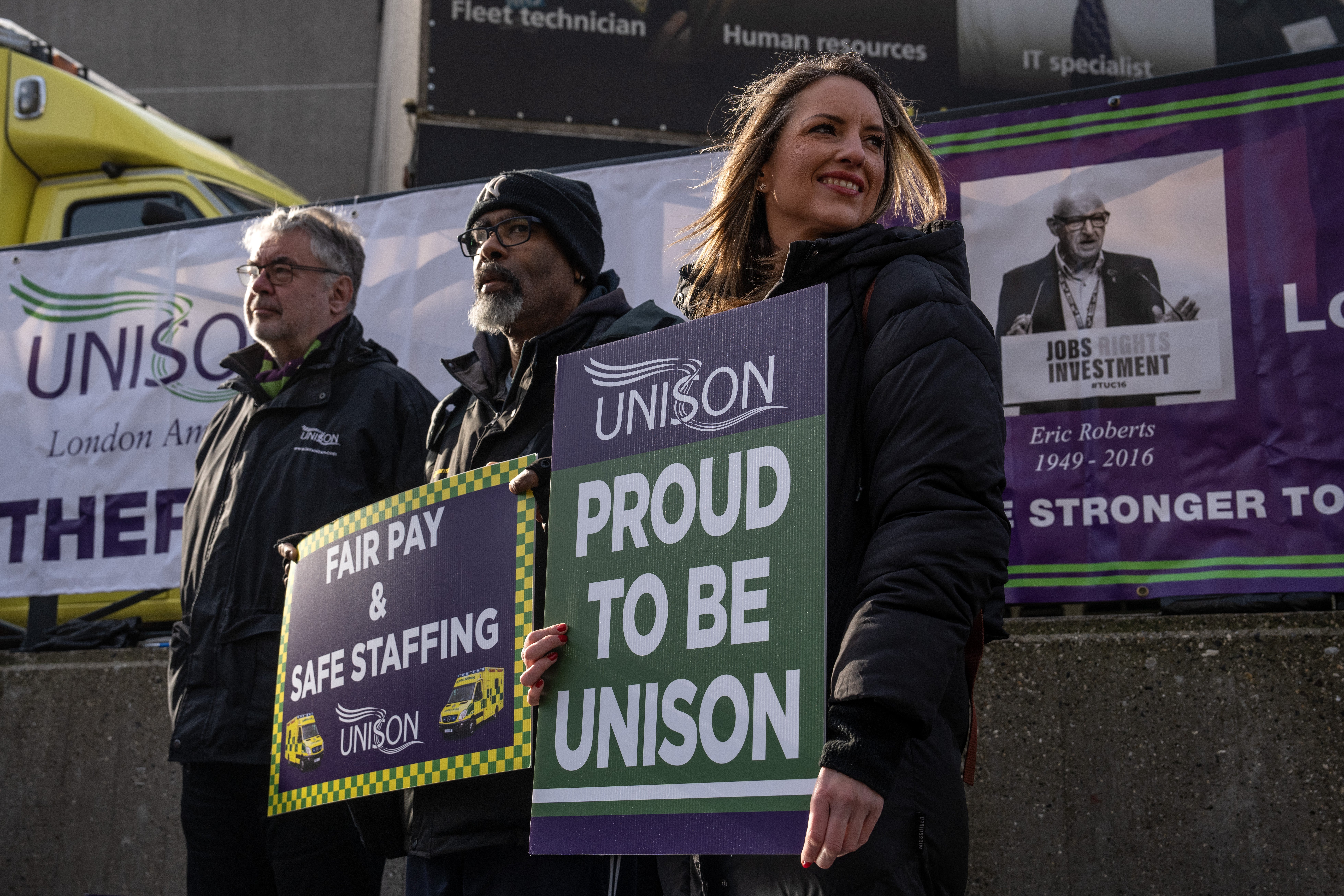Strikes bill ‘huge step backwards’ for tackling racism at work, government warned
Exclusive: ‘This legislation could give another opportunity for unscrupulous employers to target Black and ethnic minority workers’

A controversial new law on strikes will be a “huge backwards step” for tackling racism at work in Britain, union and charities have warned.
The Strikes bill, which moved rapidly through the Commons and is now in the House of Lords, aim to ensure there are minimum working standards during strike days across six sectors, including health and transport.
The TUC, the Equality Trust, and Runnymede Trust are calling on Rishi Sunak’s government to drop this “spiteful” bill, warning that Black, Asian and minority ethnic workers could be unfairly targeted for dismissal given that they’re already at the sharp end of the jobs market “rife with discrimination”.
TUC General Secretary Paul Nowak said ministers are “launching a brazen attack on a fundamental British liberty” through this bill.
“It is Black and ethnic minority workers – who are already at the sharp end of a labour market rife with discrimination – that could be hit hardest,” he said.

“Too often Black and ethnic minority workers are paid less for doing the same job as their white colleagues, too often they are on insecure contracts and too often they are unfairly disciplined at work.
“Institutional racism blights workplaces in every corner of the country. This legislation could give another opportunity for unscrupulous employers to target Black and ethnic minority workers.”
Mr Nowak added: “It’s time for ministers to drop this spiteful bill. It will hit Black and minority ethnic workers disproportionately. It’s undemocratic, unworkable and almost certainly illegal. And it will likely poison industrial relations and exacerbate disputes rather than help resolve them.”
This comes as a report by the Joint Committee on Human Rights, made up of peers and MPs, warned Mr Sunak’s government that the Bill would probably put the UK in breach of the European Convention on Human Rights (ECHR).
Black, Asian and minority ethnic workers are overrepresented in sectors affected by the legislation, and as a result, disproportionately affected.

While these groups represent 18 per cent of the total pooulation, they are overrepresented in two key sectors: health (22 per cent) and transport (21 per cent) - affected by the legislation.
Data shows that Black and Asian workers are overrepresented on insecure contracts, with Black and Asian women twice as likely to be on zero-hours contracts as white men.
These workers are more likely to be unfairly disciplined at work or being passed over for promotion -and half (49 per cent) of Black and Aisna workers told the TUC they had experienced at least one form of discrimination consistent with institutional racism.
JCWI Policy and Advocacy Manager Caitlin Boswell pointed out that racialised migrant workers already fear reporting abuse and exploitation at work because of the Home Office’s hostile immigration policies.
“Adding this new, targeted anti-strike legislation to the mix is yet another attack on Black and brown working people’s right to speak out,” she said.
“If we had a government who cared about fairness or equality, what we would be seeing is the introduction of stronger – not weaker – protections for workers in the UK, so that we are all able to report abuse, demand decent pay, and win better conditions, regardless of the colour of our skin or where we were born.”
The government has been approached for comment.







Join our commenting forum
Join thought-provoking conversations, follow other Independent readers and see their replies
Comments